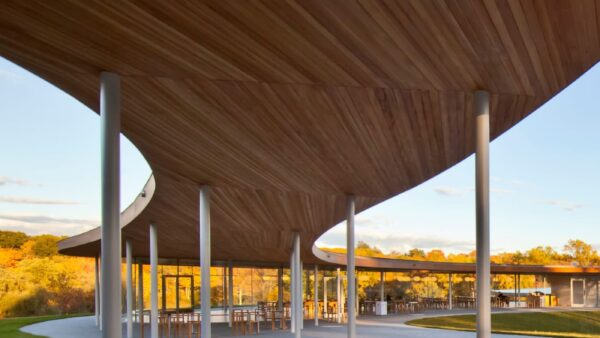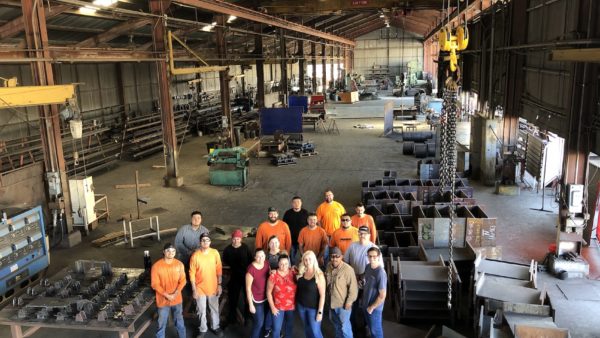As the dust clouds of the US elections continue to billow, contractors, engineers, designers and the whole US construction supply chain could well have Georgia on their minds.
Two Senate runoff elections will take place there on 5 January, and if the Democrats fail to take both, the Senate remains in Republican control and any legislation sponsored by a Biden presidency will have to get past a Republican Senate, led by Majority Leader Mitch McConnell (pictured).
Remember, McConnell is known as “The Grim Reaper” for his record of scything Democratic bills, especially during the Obama years.Â
A major part of Biden’s proposed legislative programme is his $2trn infrastructure plan.Â
Framed as a big push toward net-zero emissions, the plan commits his administration to sparking a nationwide construction boom, including a “second great railroad revolution”, building 1.5 million affordable homes, upgrading four million buildings and “weatherising” two million existing homes.
The Biden campaign said millions of jobs would be created in rebuilding “America’s crumbling infrastructure”, including roads, bridges, water systems, electricity grids and ports.
Every municipality with a population greater than 100,000 would get a public transit system by 2030. A major upgrade to the country’s school building stock was also promised.
A wounded industry
To a construction industry wounded by the pandemic, it could represent a much-needed boost.
And it is wounded, deeply so, says the Associated General Contractors of America (AGC). Just a few days before the election, it released the results of an industry survey which showed that in 2020, more construction projects had been cancelled than begun.
The survey said 75% of respondents were reporting that scheduled project work had been postponed or cancelled, while 34% of contractors estimated that their business would not return to pre-pandemic levels for at least a year.
“As our survey shows, the pandemic and efforts to mitigate its spread have deeply wounded the economy, depressing demand for many types of commercial construction projects,” said Stephen E. Sandherr, the association’s chief executive officer. “Congress can end the downward economic slide and help create needed new construction jobs by passing measures to boost demand and protect honest employers.”
All eyes on Georgia
Biden’s infrastructure plan could constitute the relief the AGC calls for, but a Republican Senate focussing on the country’s soaring deficit is unlikely to wave it warmly through.
In June, Republican Senators blanched at a much smaller infrastructure spending bill put forward by President Trump.Â
That’s why Georgia matters. There are 100 Senate seats and the Democrats need at least 50 for control because the vice president, Kamala Harris, gets the tie-breaking vote.
As it stands, the Republicans are on course to get 50 seats, and the Democrats 48. The remaining two unsettled seats are both in Georgia, where no Senate candidate managed to get the required 50% of the vote last week. So, these two will be decided in runoffs on 5 January.
They will be nail-biters. Georgia hasn’t voted for a Democrat president since 1992, but if the results of last week are to be believed, it just did, by a slim margin of some 10,350 votes.
Changing demographics
This surprise result speaks to Georgia’s changing demographics and political leanings. It’s a diverse state of around 10.6 million people, with some 60% being white, 30.5% black, and just under 10% hispanic. The population is growing and the median age is dropping.
It has also been the locus of intense, grassroots efforts to mobilise votes among young and minority ethnic voters, who lean Democratic.
That effort appears to be working. Last week, Georgia topped all states in the proportion of 18-29-year-olds voting: 21% of votes cast came from this age group (compared to 12% in Pennsylvania), and 57% of them voted Democrat.
Among young people of colour, the proportion voting Democrat rises to 90%.
Meanwhile, there are just over 8 million eligible voters in Georgia. Turnout last week was fairly modest; some 4.98 million votes were cast, making a turnout of 62.14%.
That means a little over 3 million votes are there to be mined for the Senate runoffs. Construction’s fortunes over the coming years could hang on whichever party succeeds best in tapping into those votes.
- The views expressed in this op-ed are the author’s only
Image: Senator Mitch McConnell of Kentucky speaking at the 2014 Conservative Political Action Conference in National Harbor, Maryland (Gage Skidmore/CC BY-SA 2.0)










